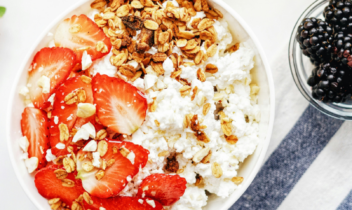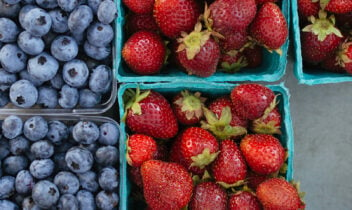|
TheBUZZ : Cooking makes fruits & veggies less beneficial to you?
WHAT THEY’RE SAYING
You should only eat fresh fruits and vegetables because cooking decreases vitamins, minerals, antioxidants, etc., making them less beneficial to you.
WHAT WE KNOW
The numerous health benefits of eating fruits and vegetables have been known for years. We know that some loss of nutrients occurs with cooking, but other beneficial compounds in fruits and vegetables (like B-carotene and lycopene) are also more available to the body because of cooking. Water-soluble vitamins (vitamin C and the B vitamins) are lost more easily during the cooking process because they easily move into the cooking water. The fat-soluble (vitamins A, D, E, and K) are not as easily lost in the water during the cooking process. Natural mineral content is generally retained during cooking. Fiber content also changes little during cooking, unless peels or outer layers are removed.
Research has shown that the loss of beneficial compounds have been found to be very minimal and is not significant in terms of human nutrition!
HOW DO WE KNOW THIS?
An article published in the Journal of Food Science analyzed the effects of six (6) different cooking methods—boiling, pressure cooking, baking, microwaving, griddling and frying—on 20 vegetables to see which method retained the most amount of antioxidants. The study found that griddle and microwave cooking helped maintain the highest levels of antioxidants, while pressure cooking and boiling led to the greatest loss of nutrients. The antioxidant levels in some veggies—green beans (except when boiled), carrots, and celery—actually increased with cooking.¹
A review in the Journal of Food Composition and Analysis found higher retention values of water-soluble vitamins in foods that were prepared in the microwave, steamed, or stir-fried. Vitamin C in spinach and green beans cooked in the microwave had a mean retention of up to 79% when compared to 66% retained when boiled. Another study cited in the same article found that retention of vitamin C was the highest in fresh broccoli, cauliflower, potatoes, frozen corn, and peas cooked by microwave steaming, followed by microwave-boiling, stovetop steaming, and stovetop boiling. The review found folate, vitamin C, retinol (a form of vitamin A), and thiamin (vitamin B1) to be most affected by the cooking process.²
OUR ADVICE
Both studies showed cooking methods that minimize the time, temperature, and amount of water needed will help to preserve the beneficial compounds in fruits and veggies. But the bottom line is that the difference in nutrient quality caused by cooking is very minimal!
The most important thing is that you eat your fruits & veggies! Enjoy a wide variety of fruits and vegetables in all forms—fresh, frozen, canned, dried, and 100% juice—prepared healthfully! They all provide beneficial compounds that promote a healthy life.
Fruit & Veggie Recipe Database
See 15 Fruit & Veggie Cooking Tips
¹ Jimenez-Monreal, A., L. Garcia-Diz, M. Martinez-Tome, et al. "Influence of Cooking Methods on Antioxidant Activity of Vegetables." Journal of Food Science (2009); 74 (3): 97-103.
² Leskova, E., J. Kubikova, E. Kovacikova, et al. "Vitamin Losses: Retention During Heat Treatment and Continual Changes Expressed by Mathematical Models." Journal of Food Composition and Analysis (2006); (19) 4: 252-76.
|


